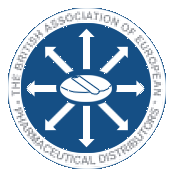Parallel Trade: an Overview of Current Issues in the Trade
It's Value
The PPDI exists in the absence of price harmonisation of pharmaceutical products within the European Economic Area. Such harmonisation seems unlikely for the foreseeable future.
The gross value of PPDI in EEA is estimated at €5.4bn (Euros), measured at reimbursement prices (not the sales prices of EAEPC/BAEPD members); of this sum, UK imports are valued at around £1bn (Sterling) annually, the second largest PPDI market after Germany (€2.8bn (Euros)). Other major destination markets for PPDI are Denmark, Sweden, the Netherlands, Norway, Finland, Austria. Incipient PPDI markets have more recently become established in France, Italy, Poland, and Bulgaria.
Total pharmaceutical consumption in Europe continues to grow, but the value of PPDI has remained broadly stable for a number of years, indicating a slightly diminishing market penetration
Pricing
In all member states within the EEA, it is the national government which controls or substantially influences the pricing of pharmaceutical products; only in the United Kingdom now is there considerable control retained by the manufacturer. The degree of government involvement by countries such as Germany and the Netherlands, which traditionally also enjoyed an element of free pricing, has significantly increased in recent years.
UK pharmaceutical prices agreed between the government and industry as a renegotiation of the PPRS (Pharmaceutical Pricing Review Scheme), every five years, the next round being due at the end of 2018.
However, this agreement is essentially "historic" as it has been put together on the basis of the current NHS drugs bill and range of medicines. All that manufacturers need to do is to discount the prices of older therapies, especially those subject to competition from BAEPD members, whilst keeping prices high for the latest products. BAEPD, therefore, are doubtful how much taxpayers will really benefit and think it likely that the NHS drugs bill will in reality go up rather than down. The only real effect is likely to be to freeze out pharmaceutical distributors from the distribution of many key lines.
Product Characteristics
Licensed pharmaceutical products which are imported by members of the PPDI are identical in all respects to the branded version marketed by the originator in the country into whose market it is first placed. All such products require a Product Licence Parallel Import (PL(PI)) which is an abbreviated authorisation granted by the competent regulatory authority, the MHRA, after extensive checks to ensure that the imported drug is therapeutically the same as the domestic version.
Consumers
The UK market is also different from others, for example, in that the person who chooses the product to supply is not the same as the ultimate consumer, as the decision is taken by a General Practitioner or other medically qualified person. The source of supply is controlled in that medicinal products for human consumption can only be obtained through a registered pharmacy.
The United Kingdom government has traditionally claimed to maintain neutrality on the issue: however, the political influence of the pharmaceutical manufacturing lobby has undoubtedly had an impact on its thinking.
Thus, the parallel trade in pharmaceuticals is different from other markets: the imported medicinal product is not a copy; does not vary in any respect from the original; and is manufactured normally by the originator himself or by their licensee to the approved product specification.
Regulation
Members of the PPDI operate within a heavily regulated environment: to some extent the scope of the regulations governing their activities is understandable in that their products are destined for entry into the pharmaceutical product supply chain with the consequent implications for public health, an area which governments have traditionally seen as being one for their involvement.
The regulations presently in force for the non-Original licence holder are far stricter and all-embracing than those which exist for the originator. Thus, for example, Bayer may import ADALAT Retard from Germany, which it can then immediately place in the market, whereas a PPDI member importing the therapeutically identical product from Germany has to comply with a complete set of procedural rules before the product is permitted to enter the supply chain.
